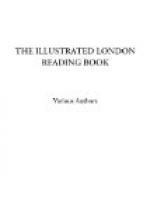Let their commands be ever sacred in your ears, and implicitly obeyed, where they do not contradict the commands of God: pretend not to be wiser than they, who have had so much more experience than yourselves; and despise them not, if haply you should be so blest as to have gained a degree of knowledge or of fortune superior to them. Let your carriage towards them be always respectful, reverent, and submissive; let your words be always affectionate and humble, and especially beware of pert and ill-seeming replies; of angry, discontented, and peevish looks. Never imagine, if they thwart your wills, or oppose your inclinations, that this ariseth from any thing but love to you: solicitous as they have ever been for your welfare, always consider the same tender solicitude as exerting itself, even in cases most opposite to your desires; and let the remembrance of what they have done and suffered for you, ever preserve you from acts of disobedience, and from paining those good hearts which have already felt so much for you, their children.
The Emperor of China, on certain days of the year, pays a visit to his mother, who is seated on a throne to receive him; and four times on his feet, and as often on his knees, he makes her a profound obeisance, bowing his head even to the ground.
Sir Thomas More seems to have emulated this beautiful example; for, being Lord Chancellor of England at the same time that his father was a Judge of the King’s Bench, he would always, on his entering Westminster Hall, go first to the King’s Bench, and ask his father’s blessing before he went to sit in the Court of Chancery, as if to secure success in the great decisions of his high and important office.
DR. DODD.
* * * * *
QUEEN MARY’S BOWER, CHATSWORTH.
[Illustration: Letter W.]
When the widowed Mary, Queen of Scots, left France, where she had dwelt since her fifth year—where she had shared in the education of the French King’s own daughters, in one of the convents of the kingdom, and been the idol of the French Court and people, it is said that, as the coast of the happy land faded from her view, she continued to exclaim, “Farewell, France! farewell, dear France—I shall never see thee more!” And her first view of Scotland only increased the poignancy of these touching regrets. So little pains had been taken to “cover over the nakedness and poverty of the land,” that tears sprang into her eyes, when, fresh from the elegant luxurious Court of Paris, she saw the wretched ponies, with bare, wooden saddles, or dirty and ragged trappings, which had been provided to carry her and her ladies from the water-side to Holyrood. And then the palace itself; how different from the palaces in which she had lived in France! Dismal and small, it consisted only of what is now the north wing. The state-room and the bed-chamber which were used by her yet remain, with the old furniture, and much of the needle-work there is said to have been the work of her hands. During her long and melancholy imprisonment in England, the art of needle-work and reading were almost her only mode of relieving the dreary hours.




